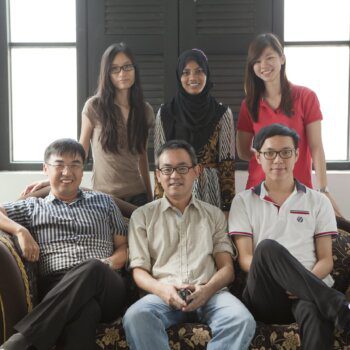Key Takeaway:
The 2024 Academy Awards recognized Cillian Murphy’s Best Actor performance, which was driven by acting intuition. Behaving intuitively is a common skill that allows us to be the best versions of ourselves in any situation. Research suggests that intuition can be trained and best understood as an “embodied state of mind” supported by cognitive abilities of being aware of ourselves and our surroundings, and being immersed in an experience. This state of mind requires maintaining awareness while being immersed, and the ability for immersion or absorption is necessary. However, it is important to maintain meta-awareness, an awareness of having the experience, rather than reflecting on the fact that you are having an experience. Intuition can be developed through training the underlying abilities: an awareness of our internal and external world, combined with immersion. Research has shown that training acting students in imagery exercises and mindfulness meditation can boost their acting intuition. Similar exercises can be used in other contexts to sharpen general underlying cognitive abilities of awareness and immersion.
The 2024 Academy Awards recognised several amazing acting performances, including Cillian Murphy’s portrayal of the physicist Robert Oppenheimer, which won him the award for Best Actor. But what is it that drives such peak performances? When an actor fully embodies the character to the extent that it creates an immersive, sustained world of make believe, we say that the actor was acting intuitively.
Such performances are not limited to acting – we might see such intuition in sports and music, too. But it is broader than that. Behaving intuitively is something we all do. It is any type of situation where we just know what to do in the moment – allowing us to be the best versions of ourselves.
So how can we make sure we behave intuitively, where it matters? And can we foster this ability? Our latest research, published in the journal Psychology of Aesthetics, Creativity, and the Arts, suggests that intuition can be trained and that it may be best understood as an “embodied state of mind” supported by the cognitive abilities of being aware of ourselves and our surroundings, and being immersed in an experience.
What does an embodied state of mind mean? William James, generally acknowledged to be the founder of modern psychology, suggested that there are two sides to awareness, the “I” and the “me”. The active aspect of self-awareness is the “I” – this is the part of our awareness that experiences the here and now – sometimes referred to as the “experiential self”. The more passive aspect of awareness is the “me” – this part that observes or reflects upon our actions. We might call this the rational or reflective self.
This distinction has long been recognised in neuroscientific research. For example, studies have shown that taking psychedelic drugs and experiencing awe or wonder can reduce activity in default mode network, which is a self-referential brain network underlying reflective self-awareness.
Moreover, recent research has suggested that mindfulness meditation might help us to move from reflective self-awareness to experiential self-awareness through training our attention.
Immersing with awareness
Our intuition relies on many unconscious processes that support all of our cognition, perception and interaction with the world. It requires us to take much of that in, but also not lose ourselves in being overwhelmed by our senses. In other words, we need to maintain the right levels of awareness while being immersed.
We perceive the world with our entire bodies, through all of our senses – from seeing to “thermoception” (sensing temperature) and “proprioception” (knowing which parts of your body are where without looking). This allows us to interact with the world around us in safe and useful ways. Ultimately, intuition happens when we are attuned to both what happens in our body and what happens around us.
But being highly aware of ourselves and our surroundings can’t fully explain intuition. When we are engaging with our intuition, we are acting on what we sense. But it can be hard to maintain our awareness if we become fully engaged with some specific task that uses intuition. This is why another ability is required: the ability for immersion.
The ability for immersion or absorption means that you can stay fully immersed in a task through focused attention. This is very similar to what is dubbed as “flow”.
But if you become too immersed, wouldn’t you lose your awareness of yourself and your surroundings? This is why we suggest you need meta-awareness: an awareness of having the experience, rather than reflecting on the fact that you are having an experience. In other words, you have to be in an experiential rather than rational state; you are experiencing, not reasoning.
Take for example acting. When we played a part in a school play, we may have been okay with representing Juliet, up until we realised that everyone was looking at us just as we stumbled over the words. We then switched from experiential self–awareness – in which we embodied Juliet – to reflective self-awareness, where we (over)thought about what we were doing. This type of “choking” during a performance is also really common in sports.
An actor acts intuitively when they enter a state of immersion during their imagining, with full attention to and awareness of the imagining, as well as full awareness of oneself and the environment. They become fully immersed in the awareness of the experience – they have experiential awareness.
But we mustn’t make the mistake of thinking that method acting involves immersing one so deeply that the actors are no longer themselves. They have to maintain meta-awareness in other to avoid mental health problems such as dissociation, and worse.
How to develop your intuition
If intuition is an embodied cognitive state rather than an ephemeral phenomenon that may happen by chance, does that mean it can be developed?
Achieving intuition is considered one of the aims of Konstantin Stanislavski’s approach to acting training (the foundation of western mainstream acting). But even in this, intuition is often still treated as something that has been handed down from the muses, much like a burst of creativity or insight.
Our research, however, found that intuition can be trained. To do that, we need to train the underlying abilities: an awareness of our internal and external world, combined with immersion.
As part of our research, we invited acting students to do intuition training, developed by co-investigator Micia de Wet. This consisted of exercises focused on imagery and structured by using guided meditations to train the actor’s attention and sensory awareness. The training also included exercises to stimulate immersion into story worlds through play and imaginative exploration. We found that this training boosted the actors’ intuition. Our survey of 310 actors also showed that the more they engaged in mindfulness meditation, the higher their acting intuition.
While this training was specific to acting, we suggest similarly guided meditations, role play exercises and mindfulness training can boost our attention and focus. These may increase intuition in other contexts, as these exercises sharpen general underlying cognitive abilities of awareness and immersion, bringing awareness to the body and environment.
Rather than an esoteric phenomenon or temporary moment of peak performance, intuition is an important cognitive and emotional state supported by abilities that anybody can continuously use to engage with the world around them – and that, moreover, can be developed.





























